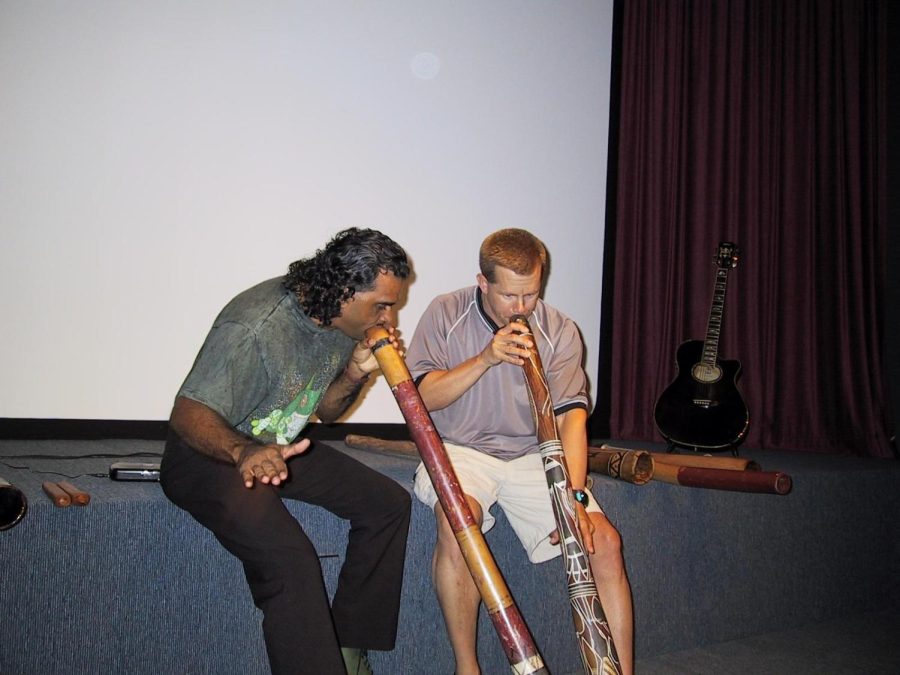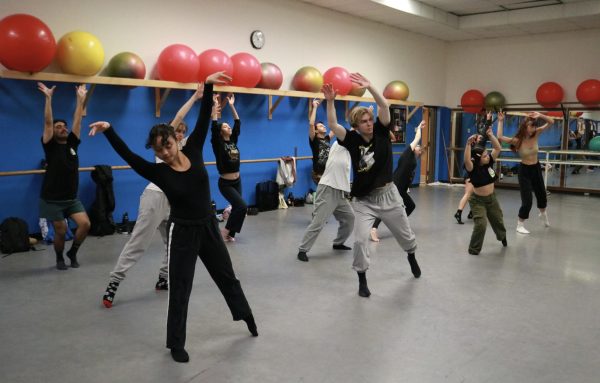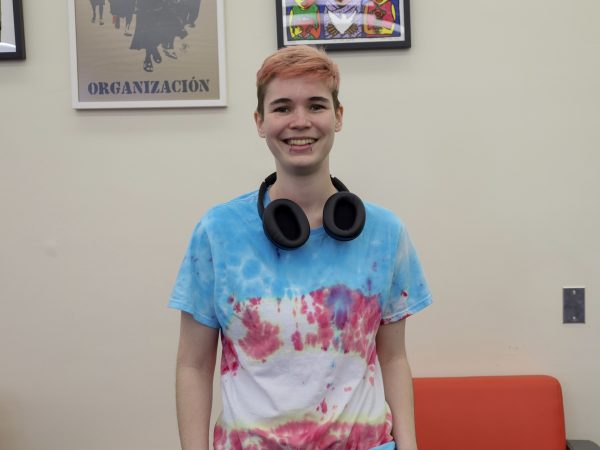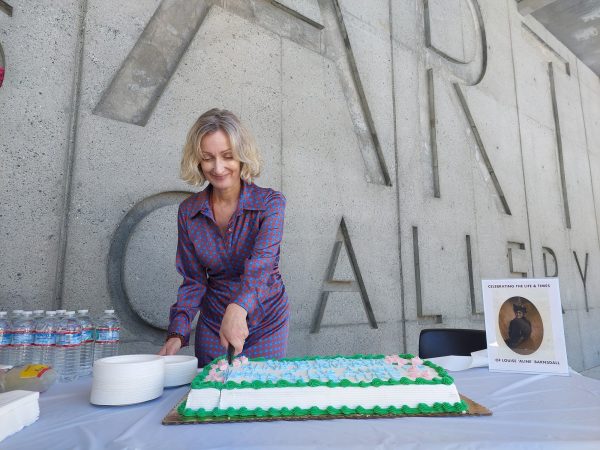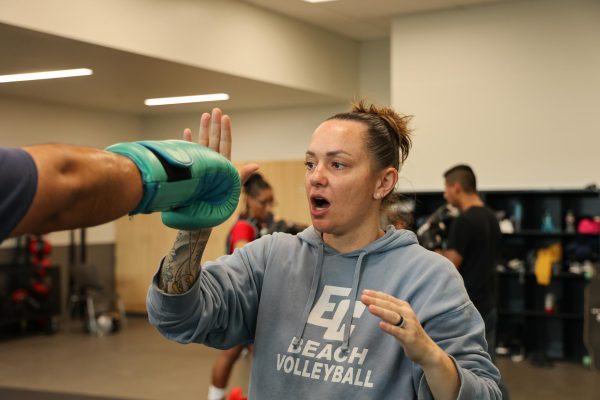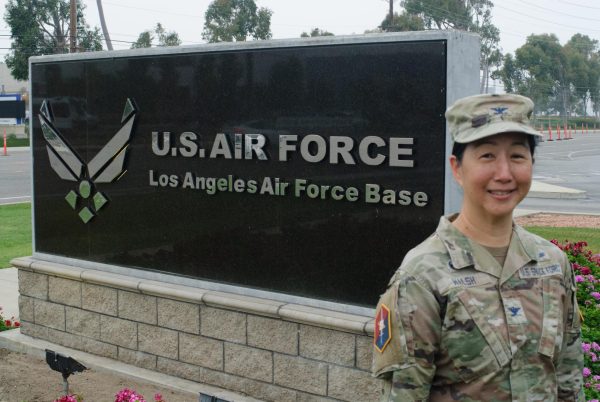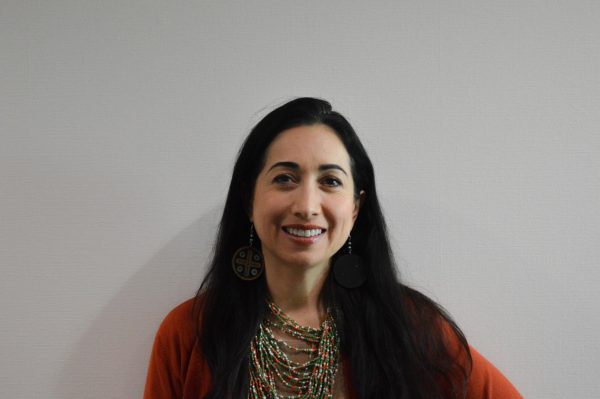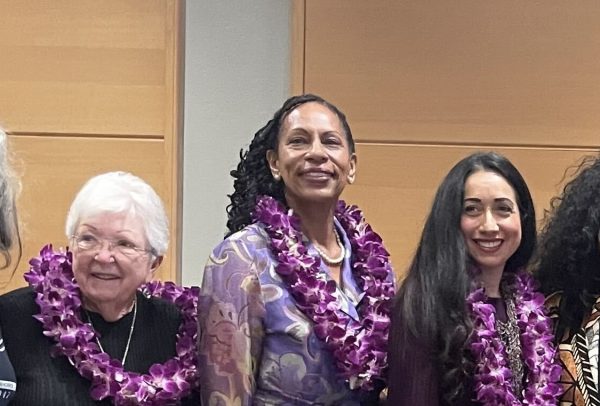Utilizing music in his travel to nearly 60 countries
David Hudson (left) teaches William Doyle (right) how to play the didgeridoo during his visit to Australia. The didgeridoo is an aboriginal instrument. (Photo provided by William Doyle)
Imagine traveling to an insurmountable number of countries. Imagine adjusting to the different time zones. Imagine meeting people you never thought you would shake hands with.
Imagine performing at the Vienna Opera House in front of 200 people because you didn’t keep your mouth shut.
William Doyle, who has a doctorate in musical arts from the University of Southern California did not only imagine any of it.
He has been a professor of music at El Camino College for 32 years and teaches music appreciation, world music, music history, music of the Beatles and private lessons on trumpet.
He also teaches the history of rock music at Copper Mountain College in Joshua Tree, California, has directed a youth orchestra and has done study abroad trips–both of which are discontinued.
Doyle has traveled to nearly 60 countries during his lifetime.
“I’ve been to most everywhere in Western Europe. In Asia I’ve been to Japan, China, Southeast Asia, Thailand, of course, Australia, New Zealand–I’ve spent a lot of time there–Fiji, Tahiti, Cook Islands, so in general Polynesia,” Doyle said.
During his time in these countries, Doyle has accumulated an immaculate amount of stories and experiences.
“What surprised me the most was [about Australia], first of all, how large the country is, the continent is, and how diverse it is. Going into Sydney is a little bit like going to Los Angeles; multicultural, multiethnic. Lots of music, lots of art, great opera, all kinds of stuff going on there,” Doyle said.
Going up to the northeast coast of Cairns, Australia on the other hand is all nature, Doyle said.
“[It was] completely different, you know, probably about as different as going from Southern California to Washington, maybe even more extreme than that … And not to mention the fact that everything wants to kill you when you’re there,” Doyle said.
One year after studying the instrument didgeridoo and becoming friends with an aboriginal artist, Doyle went to a celebration called Invasion Day.
“And it’s a very different celebration held on the same day as the European culture celebrating Australia and everything Australian, they’re celebrating aboriginal culture,” Doyle said.
The artist he mentioned was David Hudson, who is a widely popular aboriginal musician and a choreographer.
Doyle also had a once-in-a-lifetime experience in Vienna, Austria with a soprano singer named Susan Asbjornson.
During a tour of the Vienna Opera House, Doyle joked about performing a piece by Johann Sebastian Bach and on the Vienna opera stage with Asbjornson, to which the tour guide surprisingly encouraged.
“[The guide] finished the tour, and I’m just sitting there hoping that she’s forgotten this, and she’s like, ‘Okay well you can go up on the stage now.’ And Susan just looked at me and shook her head,” Doyle said.
Unprepared, Doyle and Asbjornson went down and grabbed a music stand from the orchestra pit. With no piano, Doyle takes his trumpet out of his backpack without the need to warm or tune it up.
“We played and [Asbjornson] sang. And it was just this unbelievable experience. And it went really well; people applauded and stuff. And we got off the stage and [Asbjornson] says like, ‘Next time, keep your mouth shut,’” Doyle said.
In his many travels, Doyle said music helped bring him closer to new people and cultures he comes across.
“I think, you know, that’s one of the great things being a musician; you just hit it off with people, people that are musicians that might not even be opening, want to open up their culture to you. When they sense that you have that commonality of music and creativity, it’s like the doors begin to open,” Doyle said.


